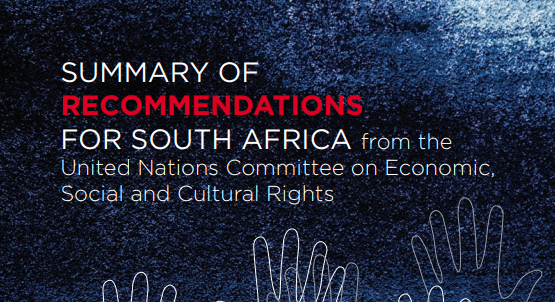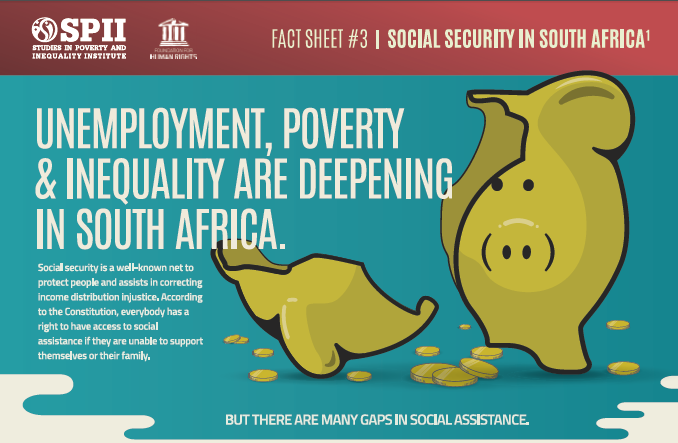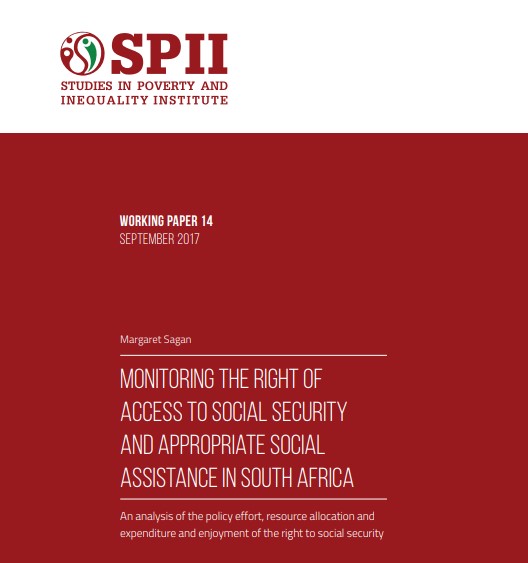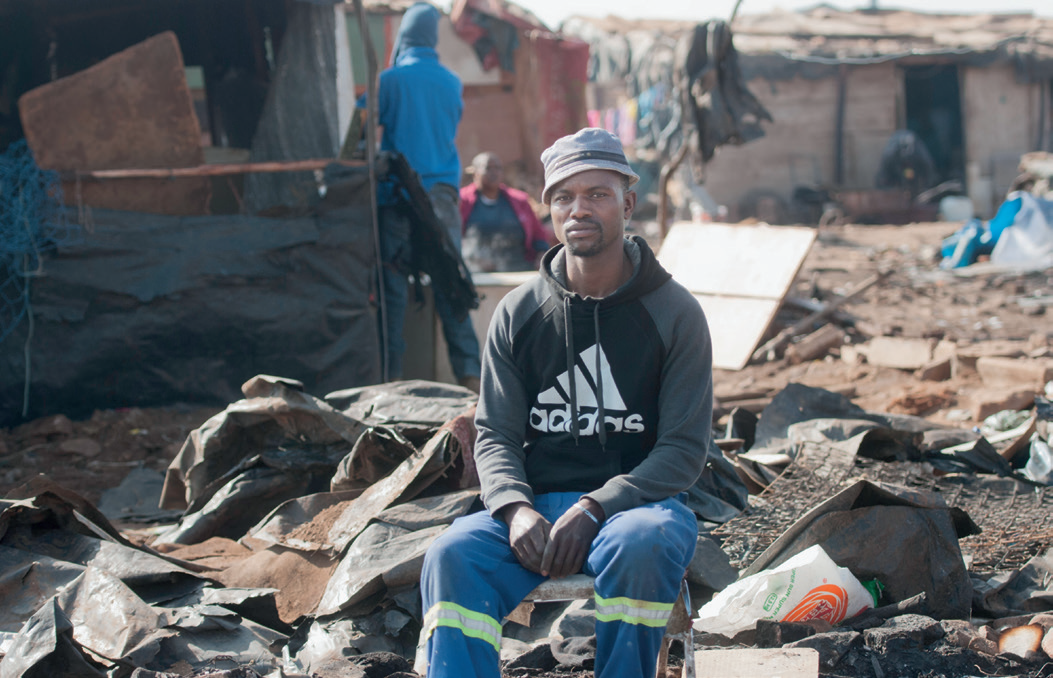Social Security
A Summary of the Obligations on the South African State Required to Be Done by 20 October 2020
The activities leading to this publication were undertaken by the Dullah Omar Institute (DOI), University of the Western Cape, Black Sash, the Socio-Economic Rights Institute of South Africa (SERI), Studies in Poverty Inequality Institute (SPII) and Peoples’ Health Movement (PHM).
Fact Sheet #3- Social Security in South Africa
18 - 19 YEAR OLD ABLE-BODIED WORKING PEOPLE DO NOT RECEIVE GRANTS,AND THE CHILD SUPPORT
GRANT FALLS FAR SHORT OF THE AMOUNT NEEDED TO SUPPORT A CHILD IN ANY MEANINGFUL WAY.
ALTHOUGH,SOCIAL GRANTS HAVE GONE SOME WAY TOWARDS REDUCING THE NUMBER OF PEOPLE LIVING IN POVERTY,THESE ARE NOT ENOUGH WHEN WE LOOK AT THE FIGURES BELOW.THERE ARE GRANTS FOR POOR CHILDREN,OLD AGE PEOPLE AND PEOPLE LIVING WITH DISABILITIES.
Monitoring the Right to Social Security
Social security is an important safety net that helps relieve poverty and diminishes some of the immediate hardships of unemployment. An effective social security system is therefore of crucial importance for the future of South Africa. It not only eases the immediate concerns which come with persistent poverty and unemployment but allows government time to tackle the long term problems of structural unemployment and poverty. Social security in South Africa is a two-pillar system made up of a state revenue funded social assistance programme (social grants) and a contributory social insurance system.
SPII’s Working Paper 6: A Review of the Development of Social Security Policy in South Africa’ conducts an in-depth analysis of the policy developments for social security before and after 1994. This analysis enables an assessment to be made on how far the constitutional obligation to progressively realise the right to social security and social assistance for those who can’t provide for themselves has been realised, and the extent to which this obligation has in fact driven the policy making process.
SPII’s Policy Brief 1: Monitoring the right to social security in South Africa focuses exclusively on the social assistance pillar of social security. This includes the following grants: Old Age Grant (OAG), War Veteran’s Grant (WVG), Disability Grant (DG), Grant in Aid (GIA), Foster Child Grant (FCG), Care Dependency Grant (CDG), Child Support Grant (CSG) and the Social Relief of Distress Grant (SROD) which is available for a limited period of time when in an unforeseen and dire situation. The main reason for this is that contributions to social insurance are restricted to small parts of the working population in a context of massive structural unemployment.
SPII also conducted primary research in Zandspruit informal settlement in 2012/13 in relation to primary health care and social security. The findings from this research can be found in The right to social security and primary health care in Zandspruit informal settlement South Africa.
The working paper was updated in 2017 to reflect the latest figures. Our updated paper, Working Paper 14: Monitoring the Right of Access to Social Security And Appropriate Social Assistance in South Africa, can be downloaded here.
Monitoring the progressive realisation of socio-economic rights:
Lessons from the United Nations Committee on Economic, Social and Cultural Rights and the South African Constitutional Court
Lilian Chenwi, Senior Researcher
Community Law Centre, University of the Western Cape
Socio-economic rights form an integral part of human rights law. These rights have been guaranteed in various international law instruments and national constitutions. Similar to the African Charter on Human and Peoples’ Rights (African Charter), the South African Constitution (the Constitution) is internationally renowned for its inclusion of socio-economic rights alongside civil and political rights. The full realisation of socio-economic rights is crucial to overcoming the challenges of poverty, marginalisation and underdevelopment. This is because these rights, among other things, provide people especially those living in poverty with access to certain basic needs including resources, opportunities and services that are necessary for them to lead a dignified life.
The implementation of socio-economic rights is, however, subject to the qualifications of ‘availability of resources’ and/or ‘progressive realisation’, contained in both the International Covenant on Economic, Social and Cultural Rights (ICESCR) and the Constitution of South Africa. These qualifications could be used by states to delay implementation if they do not properly understand the meaning of the limitations. Monitoring the progressive realisation of these rights therefore becomes vital. In carrying out this exercise, a key question is how to ascertain whether sufficient and efficient steps have been taken to progressively realise socio-economic rights.















